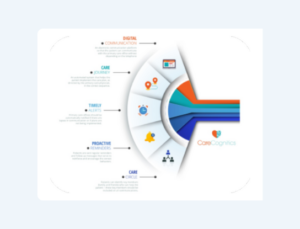5 KEY TAKEAWAYS FROM PRIME HEALTH INNOVATION SUMMIT
- admin
- December 20, 2021

by Sunny Tara, This Post was Originally Published on MedTech Boston on June 10, 2019
The 2019 Prime Health Innovation Summit in Denver, Colorado, got something big right: Organizers brought together the innovation and entrepreneurial spirits. And if healthcare needs anything to move forward right now, it’s more of that drive.
I attended the Prime Health Innovation Summit last month in Denver, Colorado, to learn more about innovations in digital health nationally and in Colorado. I was impressed by several things, including the team that Prime Health assembled, which should serve as an example and inspiration for others who want to make a difference. As usual, the conference had a good mix of entrepreneurs, domain experts, providers, health systems, payers, and policymakers from the government.
But this year, the summit was different. What stood out for me was that most people, particularly keynote speakers, didn’t simply make a guest appearance and then leave immediately after. Instead, most of them stayed, interacted with participants, and were noticeably there to a difference. Hence, I felt compelled to share my top five takeaways from the innovation summit.
Not hyperbole - Colorado is doing amazing things in health care innovation. All-star group of state officials with dynamic agendas. #InnovationSummit19 pic.twitter.com/slIYdPkSsC
— Lisa Bari 💉😷 (@lisabari) May 7, 2019
1. It’s Time To Deliver Value-Based Care.
Chronic disease is the biggest driver of cost — and yet, still, the greatest cause of death — within the U.S. healthcare system. Today, 85% of our total spending and 75% of deaths are caused by chronic diseases. We need to re-engineer our healthcare system to be tackle chronic illness both effectively and cost-efficiently. Many experts consider value-based care, with more emphasis on primary care, to be the answer. But somehow, we haven’t seen widespread adoption of that one would expect.
What grabbed my attention at Prime Health was the joint announcement from UnitedHealthcare and Centura Health, which are partnering to create a different health plan for employers. The plan includes unlimited access to primary care with no copay for PCP visits, urgent care, or online doctor visits for its employees. Two very positive things that caught my attention:
- Employers and the government account for a lot of healthcare spending. The Centers for Medicare & Medicaid Services (CMS) is the largest payer, which means it has leverage. Employers can also play an influential role in making this change, as they are major funders of health plans and have the most to gain from keeping a healthy workforce. I would really like to see more employers follow this path.
- Centura shared its plan to eliminate copays for primary care visits and make virtual care available. Its decision to focus on improving primary care for employees by working with United is a step in the right direction. Centura’s decision to create this plan is a bold and forward-thinking move, given that its implementation might directly impact emergency department (ED) visits (one of the most profitable revenue centers for hospital systems). This is extremely encouraging, and it shows Centura’s commitment to leadership in the field and to patient-focused solutions that aren’t simply about maintaining a bottom line. We need more hospital systems willing to innovate in this manner.
2. Embracing Diversity In Ideas Alone Is Not Enough.
We all agree that we need to be open-minded to embrace new ideas, but it is equally important to create a forum where one can challenge existing ideas to make them better. Ruth Benton, CEO of New West Physicians, was not shy about putting UnitedHealthcare executive Marc Neely on the spot regarding the fact that some the reimbursements don’t even cover the cost incurred by New West.
Benton served as a voice of honesty from the physician’s perspective on the panel, emphasizing the need for better data interoperability and the free exchange of information from the electronic health record (EHR). She questioned why “it still takes 90 days to move EHR data from one place to another” and explored how that lag impacts care delivery.
“We haven’t been good at collaboration, and that’s why we have runaway health costs. We don’t want to all be employees of the government,” Benton said.
This was met with jeers from a table of leaders from the federal government, but the exchange accurately reflected the natural market in healthcare and the importance of doing what we are good at. It was direct and honest and informed my personal mission: Let physicians be physicians, let innovators create, and let regulators enable our entry into healthcare to solve the problems of leaders like Benton. It reminds me of my days at Harvard Business School, where I learned that there is always a better way of solving a problem. But to find it, one must create a safe place for people to debate and challenge ideas to create better solutions.
3. Policymakers As Partners In Change.
I had the opportunity to interact with so many high-level policymakers from various government agencies, and I was thoroughly impressed with their energy, passion, and commitment to help make our healthcare better. Ed Simcox, chief technology officer for the U.S. Department of Health and Human Services, spoke about being an entrepreneur. As an entrepreneur, I was inspired by government-led efforts to partner with creators, such as through a new federal entrepreneur-in-residence program. Paula Braun, who holds that role at the Centers for Disease Control and Prevention, spoke about her work and argued that the most important public health efforts are led at the local level. The connections that we have with individuals in our local economy matter. Each area has a different population, with its own barriers to healthcare and different access to services. In Colorado, Prime Health has invested the time and effort to welcome innovative ideas and programs.
4. No “I” In Team.
Sarah London, senior principal with Optum Ventures, described what she looks for when investing in companies. “You can have a great business model, but a good team will get you through the bumps in the road and the trenches,” she said.
Here’s what a great startup team looks like to London: “We need trust, a real team, curiosity, accountability and data-driven [work].”
As I’ve started companies, I’ve realized that the importance of one’s team cannot be over-emphasized. The team will determine the success or failure of the company. What resonated for me was London’s background as a successful entrepreneur in the healthcare startup world. She could relate to the challenges faced by entrepreneurs and was direct in highlighting the unique nuances in healthcare, such as long, typically 18-month sales cycles, regulation, and so on. That acknowledgment of the realities of the healthcare sphere can only come from having boots on the ground. We need more people like Sarah London in the investor world.
5. “We Can, We Must, And We Will…For The Health Our Nation.”
Health-tech entrepreneur Mike Biselli epitomizes the sentiments, vision, passion, and commitment he brings to this cause. Having had the opportunity to tour the Catalyst HTI building with Biselli, the founder, I can say he has built something special and inspirational in Colorado. His vision of cooperation, bringing together different stakeholders, and building a space for this activity has created an ecosystem. I plan to return to his state — to see what Nevada can learn from Colorado, to create a Catalyst HTI in my community, and discovering pathways for CareCognitics to contribute to the success of this movement.
Sunny Tara is CEO and co-founder of CareCognitics.
This entry was posted in Design & Artwork
Related Post
Casino Loyalty Programs And The Healthcare Experience On The HCbiz Show
- Posted December 24, 2021
ANNUAL WELLNESS VISIT: OPPORTUNITY LOST TIMES 3?
- Posted December 21, 2021

